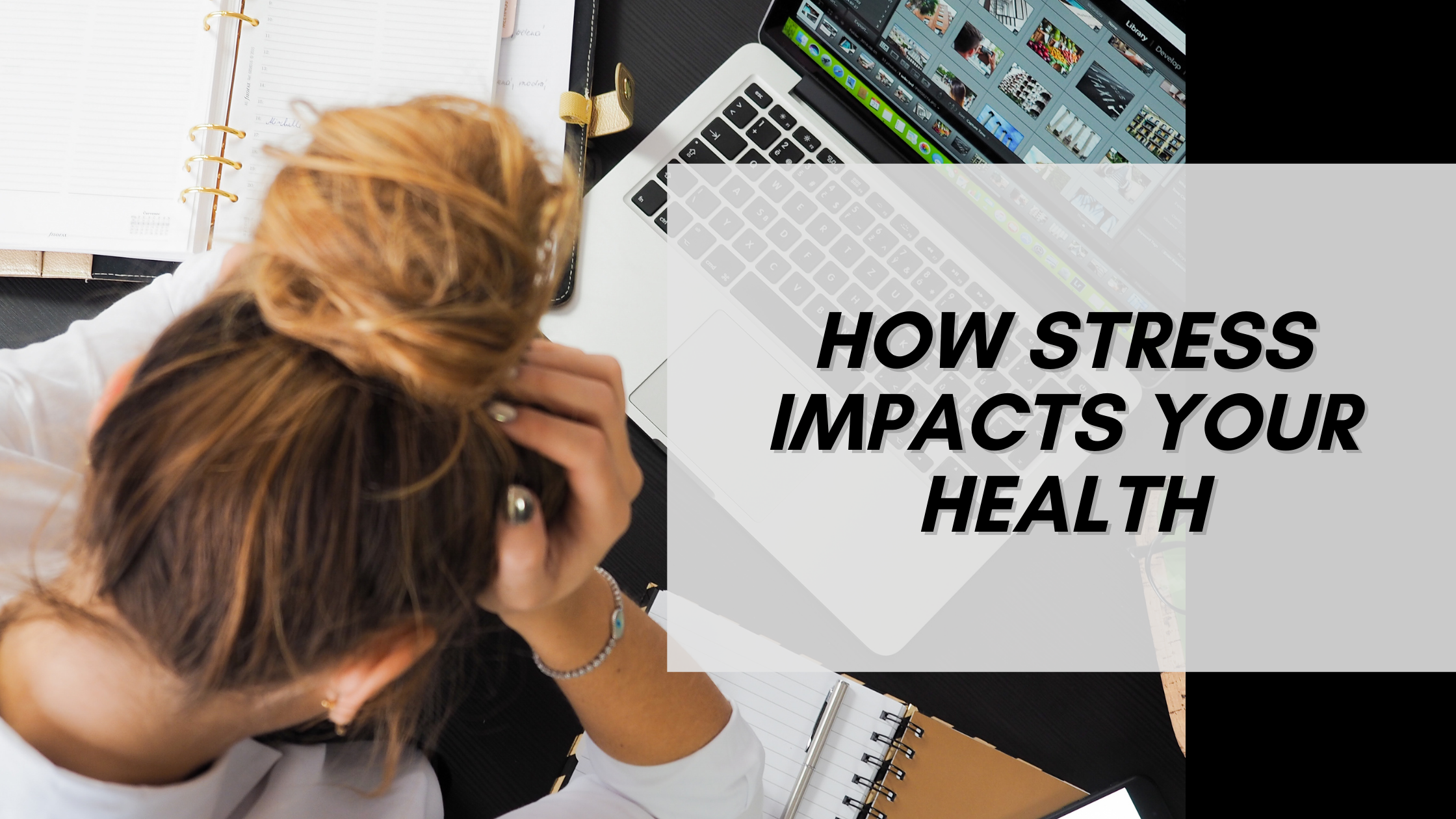How Stress Impacts Your Health
Stress presents itself as a variety of different symptoms in the body through physical, behavioral, and emotional traits. Some symptoms you may not have known were due to stress. This includes physical effects such as fatigue, weight changes, and more. Stress is an important topic to talk about freely while becoming increasingly less taboo. Talking, reading, and researching the topic of stress and its physical symptoms helps distribute knowledge to those suffering.
Nobody is immune to stress, especially through the holidays and the pandemic. Some people may be more affected by it than others. Knowing what symptoms and stressors look like can be extremely helpful in understanding and easing the problem.
Physical Symptoms
Fatigue is a common sign of stress and its physical impact on the body, “the immune system becomes weakened and susceptible to infectious disease such as respiratory infection” (Iida, “Effects of Psychological…”). Stress can lead to fatigue and then—in extreme cases—lead to respiratory problems, which can be a scary reality in the world of COVID.
According to doctors Segal and Smith of Stress symptoms, signs, and causes of HelpGuide.org, your health can be impacted directly by an excess amount of stress.
Some problems caused by stress include:
Generalized pain
Sleep problems
Digestive problems
Skin conditions such as eczema
Heart disease
Reproductive issues
Chest pain
Rapid heart rate
Loss of sex drive
Nausea
Dizziness
Colds and flu
The most common causes of stress (not inclusively) are major life changes, work or school, relationship struggles, financial problems, familial duties, perfectionism, lack of flexibility, pessimism, divorce, death, job loss, marriage, or injury/illness.
How to Recognize the Problem
There are also behavioral signs to look out for in your loved ones, coworkers, or friends that are signifiers of high-stress levels. It is not always easy to tell if someone is in physical pain just by looking at them, but in combination with physical changes, you may find some clues to their stress levels with behavioral changes.
Segal says to look out for, “change in eating patterns, withdrawal from others, change in sleep patterns, using alcohol, cigarettes or drugs to relax, and nervous habits.” While these may be subtle changes in conjunction with physical additions due to stress, it's informative knowledge when looking out for another person's tendencies.
Easing the Symptoms
Thankfully there are some simple ways to ease these physical effects of stress. One includes getting up and getting moving. Increase your activity level if possible for your body at the moment. This will not look the same from one person to another due to injuries, specific pains, lifestyle, etc. The main goal is to listen to what your body is telling you and go with it accordingly. Rest can be just as useful for a healing body as movement can be.
For those who are able to safely incorporate extra movement into their routine, the doctors recommend “rhythmic exercises such as walking, running, swimming and dancing as they are particularly effective, especially if you exercise mindfully, focusing your attention on the physical sensations you experience as you move.” In other words, move your body for yourself, for your health.
Exercise has a variety of beneficial uses beyond aesthetics and body trends. Pilates is a great way to regain control over your health and physical pains.
References
Iida, T., Ito, Y., Kanazashi, M., Murayama, S., Miyake, T., Yoshimaru, Y., Tatsumi, A., & Ezoe, S. (2021). Effects of Psychological and Physical Stress on Oxidative Stress, Serotonin, and Fatigue in Young Females Induced by Objective Structured Clinical Examination: Pilot Study of u-8-OHdG, u-5HT, and s-HHV-6. International Journal of Tryptophan Research, 1–10. https://doi-org.ezp.lib.cwu.edu/10.1177/11786469211048443
Segal (Ph.D.), J., & Smith (M.A.), M. (2021, July 14). Stress symptoms, signs, and causes. HelpGuide.org. Retrieved November 18, 2021, from https://www.helpguide.org/articles/stress/stress-symptoms-signs-and-causes.htm.
